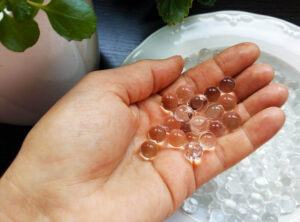 A research paper published in Cell claims to have discovered a form of E. coli that thrives by transferring electrons to conductive surfaces. The end-result of the process is bacteria that exhale electricity, making them potential future bio-batteries. The bacteria can only be grown under certain conditions that, right now, can only be duplicated in a lab. They immediately “die” outside those conditions.
A research paper published in Cell claims to have discovered a form of E. coli that thrives by transferring electrons to conductive surfaces. The end-result of the process is bacteria that exhale electricity, making them potential future bio-batteries. The bacteria can only be grown under certain conditions that, right now, can only be duplicated in a lab. They immediately “die” outside those conditions.
Scientists in shock – discovery of bacteria that literally breathe electricity and could revolutionize energy – El Adelantado de Segovia
Source Link
Excerpt:
Scientists just discovered that Escherichia coli (a bacteria best known for occasionally ruining your romaine lettuce) has a hidden superpower. In the absence of oxygen, these tiny microbes can literallysurvive by dumping electrons into their environment, effectively “respiring” electricity. If that sounds like something from a budget Marvel origin story, you’re not wrong…..
Inside the bacteria, a molecule called NADH (which usually helps generate energy) starts shoveling electrons like a caffeine-addicted coal worker. These electrons get passed to HNQ, a weirdly named molecule (it’s called 2-hydroxy-1,4-naphthoquinone, if you want to know how Elon Musk’s next child might be named) that acts like a molecular extension cord.
HNQ then sprints those electrons out of the cell, straight into an electrode. And at the heart of this bizarre process is a little enzyme called NfsB, which basically acts like a bouncer, making sure those electrons head out the door properly.
When researchers deleted the gene for NfsB, the electricity breathing stopped. Add it back in? The bacteria lit up the circuit like Christmas. Eureka!














